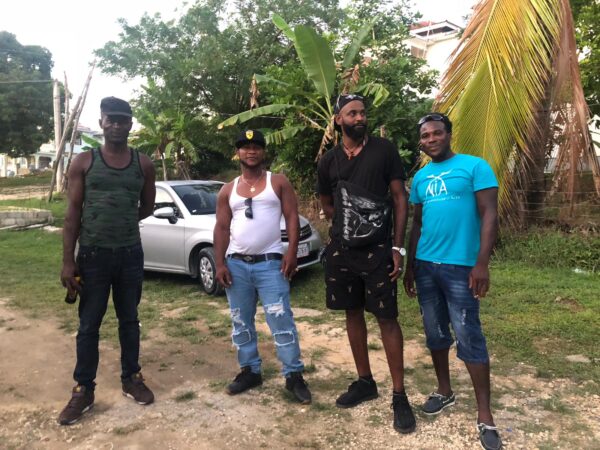ACLU Petitions Supreme Court on Behalf of Wrongly Convicted Jamaican Fishermen
Weir v. United States Will Ask the Supreme Court to Decide Whether Congress Has the Power to Criminalize Conduct by Foreign Nationals, Aboard Foreign-Flagged Vessels on the High Seas
WASHINGTON — The American Civil Liberties Union, the ACLU of Florida, and the law firm Stroock & Stroock & Lavan LLP today petitioned the U.S. Supreme Court to consider whether Congress’ power to define and punish felonies committed on the high seas extends to conduct committed by foreign nationals on a foreign-flagged vessel, with no connection to the United States.
This filing is on behalf of four Jamaican fishermen who were secretly detained at sea for more than a month in 2017 on four U.S. Coast Guard ships, without due process and in inhumane conditions. While a separate lawsuit challenges the unlawful secret and abusive detention of the men at sea, this petition challenges the men’s convictions for lying to the Coast Guard officers about where they were going when the Coast Guard stopped them — at gunpoint — in international waters between Jamaica and Haiti.
“After stopping our fishing boat in the Caribbean Sea, the Coast Guard seized us; removed us from our boat, which Coast Guard officers then destroyed; forced us to strip naked, supplying us with paper-thin coveralls; chained us to the decks of four Coast Guard cutters; and held us incommunicado for more than a month, all while denying us access to shelter, basic sanitation, proper food, and medical care,” said Robert Weir, one of the fisherman. “We each ended up spending more than a year in U.S. prisons and returned to Jamaica financially ruined and our livelihoods destroyed. It adds insult to injury to now learn that the United States didn’t even have the power to charge us for ‘lying’ to the Coast Guard officers about where we were going, much less convict and punish us for that.”
According to U.S. prosecutors, the men claimed their destination was the waters near the coast of Jamaica, when they were actually destined for Haiti. In fact, the men had not lied to the Coast Guard officers. They pleaded guilty because they were told by their attorneys that it was the quickest and surest way to get back to their homes and families in Jamaica and put an end to their nightmare. The current petition challenges those convictions as unconstitutional because, even assuming the men lied to the Coast Guard officers, the United States cannot criminalize statements made by foreign nationals on foreign-flagged vessels to United States officials when made in international waters (where the Coast Guard had stopped the men and their boat) because such conduct had no potential harm in the United States.
“Under our Constitution, Congress does not have roving authority to criminalize foreign nationals’ conduct on foreign vessels if it has no connection to the United States,” said David Cole, legal director of the ACLU. “That principle was recognized by none other than James Madison, Thomas Jefferson, John Marshall, and the Supreme Court itself. The 11th Circuit rejected that fundamental limit on congressional authority, so we’re asking the Supreme Court to restore this important principle.”
A copy of the filing is available here: /legal-document/weir-v-us-supreme-court-petition
Weir v. United States case page is here: /cases/weir-v-us


